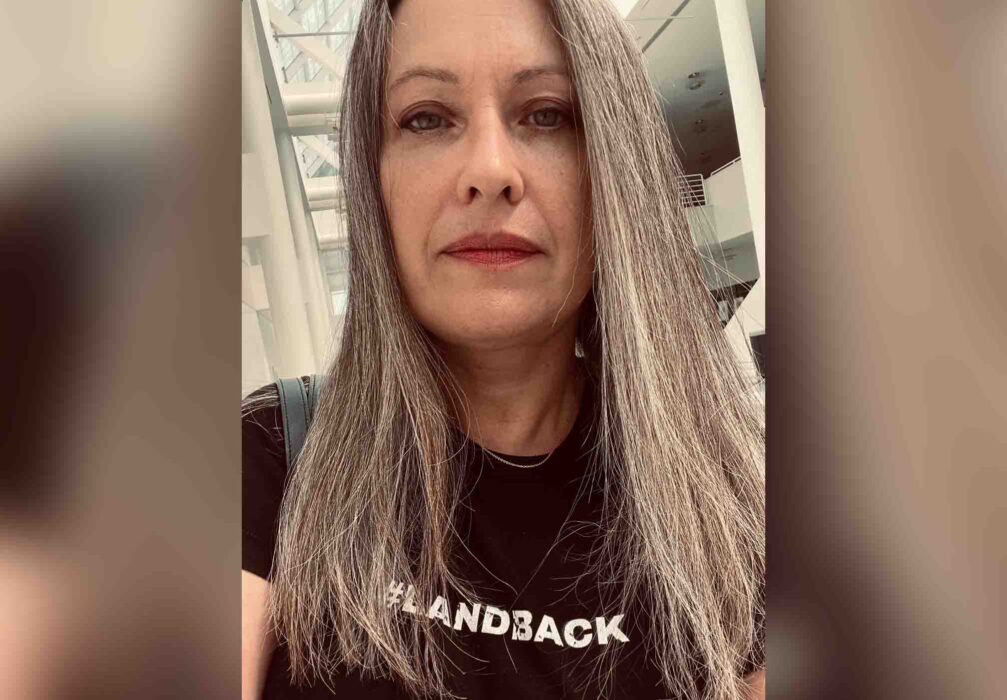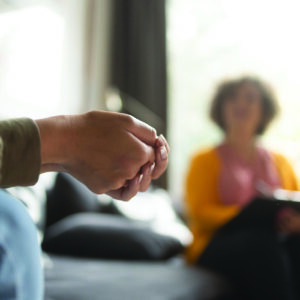
When the Tk’emlúps te Secwépemc First Nation announced the discovery of the remains of 215 children at a former residential school site in Kamloops, B.C., it set off pledges and calls of action from the government to be better at reconciliation. But to many Indigenous people, including Theresa McCarthy, the discovery was not necessarily a surprise.
“My reaction was similar to a lot of people who already knew this type of desecration existed. It renews your sense of grief and reignited it in new ways for everyone in North America,” said McCarthy, interim chair and associate professor of Indigenous Studies at Buffalo University, and associate dean for inclusive excellence. “We are for our families and relatives who have suffered within schools like this. It is such an atrocity and so heart-wrenching.”
McCarthy said she knows allyship and reconciliation may look different to everyone, but to her, an ally is someone who has taken up a willingness to rethink their relationships with not only Indigenous people but also with other important aspects to land and resources.
“Hard to simply define the idea of an ally. To be an ally is being really open to reconstituting good relations. Good sustainable relations,” she said.
To many Indigenous people today, there is no excuse as to why someone can not educate themselves on the truth behind Canada’s residential school system.
“When we think back to when the public narrative about residential schools in Canada emerged, it didn’t emerge until the late 20th century. We have a lot more information going in now in terms of Indigenous documentation.
“There really is no excuse as to why someone can’t find the information to educate themselves on these issues. There is an emphasis now on new curriculums, there is accessibility to all kinds of Indigenous artists, lawyers, doctors, writers who are successful in the public domain. We have our own experts teaching and sharing in communities. There simply is no shortage of places to go to learn and I don’t see any excuse for this anymore.”
The current movement in Indigenous studies and education is moving away from only writing essays and papers that stay between professors and students within institutions. McCarthy said Indigenous people are putting more out there now and are doing this to create public and accessible resources to keep the public engaged.
“As we learn more from this discovery, it’s a reminder that even Indigenous bodies of land have continued to be subject to desecration. From the schoolyard itself to a vault of information locked up in a university, the truth was being hidden,” she said.
McCarthy said she recently looked over the TRC recommendations, the missing children and burial pages in particular. And she said the recommendation should be looked at again and updated.
“When you look at the recommendations, they do acknowledge burials and missing children, but I don’t think it has been as hard-hitting as this recent discovery. This discovery never was unknown to Indigenous people. The survivors’ personal narratives and even their silence told you something devastating happened there. We already knew through their stories—and their silence.”
The associate professor said she thinks Canadians are finally faced with acknowledging that Canada is not the haven for all people that they were led to believe.
“With this discovery and other recent discoveries, people have had to finally compare themselves to what’s been going on in the U.S. with Trump and the era behind him. Canadians hold to these myths about Canada being this place that is much more progressive, peaceable, much less fraught with the kinds of tensions that exist in the U.S. That idea has been very jarring for some, especially when you consider the comparisons. This is the first time I’ve ever seen residential schools become an international story. I think that is saying something about the conversations being had about it. And it is all connected.”
When discoveries like this come to light, McCarthy said it is hard to know exactly what the response of a non-Indigenous person should be, but it all comes down to caring about making Indigenous lives better.
“I don’t have all the answers or know exactly what they should do. Some people still think that Indigenous people have to do the work of educating them. It’s an ally’s job to not lean on another individual to teach them. Take up their own load and their share of the work. Again, all of these resources are out there.”
Indigenous people have been on the front lines of seeing their land taken and seeing other rights placed above theirs for a long time. McCarthy said if this can happen to them then it can happen to you.
“These things are frightening and not just to Indigenous people and POC but all of North America. It is not just Indigenous people affected by this discovery,” she said.
McCarthy said it is necessary for the Indigenous voice to be the most important one heard in moments like this because these are their embodied experiences.
“For so long Indigenous people have not had the authority to be the primary knowledge passers themselves. We weren’t given the authority to speak about our own experiences or make decisions with their own best interests.”
When it comes to calling on the government to continue ground radar scanning of other residential schools in the country, McCarthy encourages it.
“I encourage it. I think Canada needs to have some binding laws that you can’t take, hide, or remove human remains of Indigenous people. Indigenous lands have always just been there for the taking and we need to disrupt that idea. Such a profound desecrating to think that this can be done without repercussion.
“When I read those calls to action, allies become so concerned with calling upon the government to act. The government is supposed to be the people. So you have a very personal role ensuring accountability and justice too and you need to act on that. If it means holding your leaders accountable then so be it. People need to find themselves in that understanding.”
If someone wants to better understand their role in reconciliation and how they can be a part of it, that individual should expect to be changed.
“An individual willing to stand with an Indigenous community should be willing to be altered. Can’t think you’re going to be an ally then go back to looking and thinking at the world in the same way. Exposing yourself to Indigenous issues and ways of knowledge, you’re going to be altered,” said McCarthy.







